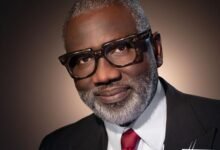Campaign ‘2020’ (2)
Ballot “2020” is slightly more than one year away; but the days are shortening and as the time rolls on, it is possible today to think that the campaign must have been being begun in earnest with the ruling NPP apparently giving themselves a head-start, monitoring radio stations which support their cause.
There is no reason to suppose that the collective opposition particularly, the NDC, are unaware as they engage sporadically mostly through snap radio interviews for opinion slots and or via news conferences and hand-outs sparingly. The electoral pugilism may outwardly bear semblance to the cut and thrust so familiar; but there is a creeping shift, tip-toing into full campaigning ahead of official time.
Ibelieve also, that it is possible to speculate the electioneering properly would be as brisk and it is right to observe even the NPP-media have, to a point reporting, been accurate and have kept the balancefair, apart from normal winces which are political sneers; but allowed in the game and or VAR-checked, borrowing that controversial football-tester.
Until about the second week in October, the status quo had held. Then a new surge of slurs have changed the menu which suggests indecorous ruthlessness in muck-raking. These toxics have set the political clock back potentially predicting no holds barred where ranting, lobs of coarse language, obviously radio-acting scripted-drama which lashes out acids against persons from highlight-historical achievements and failures’ records.
The depth of the rising pollution resonates with flashes of “2016” bare-fisted,less than “2012” when the NPP must have spent whooping cash with block-buster hold on media Ads which neither spanned nor threw dirt at political rivals. Of course, there was vice-versa, irrespective of the NPP’s massive presence. It required no-brainer to figure out incalculable cost because the Ads industry got or cultivated, as maximum as possible windfall profit-advantage in fees—bonanza came to town.
And this is not a country campaign-spending is limited by statute and the political parties and candidates flout the mere law for reporting audited accounts, post-elections, with the Electoral Commission.What happened from the back years through is the in-coming rulers and losers, the law makers and custodians, thus break the law at reign-birth with impunity. You wonder the implications don’t impact.
The ‘comfort zone’ was decidedly run-down when reports went viral about NPP training gendarmes in a couple of locations in the central and eastern regions, denied but the NDC is said claiming forced to be getting their own on. These Troopers are outlawed. I don’t remember the CPP [now superseded by NDC] and DOMO [NLM, –NPP’s progenitor] corresponding types were legislated against. They fizzled at the end of the NLM-Ashanti- cession-bid violence 1954-56. Put in its proper historical context, the present partisan ballot-box terrorism dates back to 1996. They were called “Macho men” hirelings encouraged to ‘protect’ respective parties “votes”. They could snatch ballot boxes, dislocating counting of votes and affected results with impunity. Those were allegedly NDC-engineered.
The NPP followed suite; and the name has morphed now to “Vigilantes.” There was a predecessor though not as vigorously intimidating linked to the regime during the second Republic also political-party-led by the PP [Progress Party, immediate parent of the NPP today]. It is easier said that the old rust is back. However, strangling that ominous prospect is the reality that politics will always pick up a fight where there is none. The matter is really that it would have been thought and should be expected that this time can be held to a different standard than previously.
It derives from experience of the long trek since independence and the contents plus the elements in global development and calibre of more quality-educated in politics presently have two great advantages: resilience in knowledge of the past and the nothingness which that preceding eras have led this country this far, ought to advise against unsubstantiated radio innuendos and that secondly shall usher prying away the narrative into decent search of influence as instead looks like the country being prepared for long stretches of machinations in dirt-exchanges—a choreographed stratagem to evade talking real issues.
It appears that this ‘by-pass’ has become finessed; but it can be discerned through over-hearing and observing today that the country’s strength of collective-gullibility and partisan loyalties have weakened—perhaps landslid. Elections are won by the status of the economy as felt at the markets, work and sales shops, the streets, jobs and the take-home pay-cheque’s purchase value, not for example inflation statistics and IMF verdicts, long discredited for seeming a tending to please incumbents In Africa, as long as they are their “good boys.”We get these thrown in all the time at electioneering seasons. Their strongest point apparently, is to indirectly boost influence,favouring swing-votes for the regimes when backs are at the walls and a wide gap exists between the respective publics and governments over the streets and homes realities.
Incidentally, the tally of plus and minus, is these do not make things fuzzy: there will be no real debate about issues headed by priorities, examination of performances audited from deliveries of pledges and explaining which way and how each newpolicy-promise will go for the country to feel renascent, at long last. I doubt the answer to the staring vacuum be felt by the politicians and parties to be costly in cash and electorally. It is an old sense of immune which straddles the gap with reference to what should be done as opposed to would be, reading the rehearsals now. Potentially, it is getting the vote that matters—sad but not a mistaken guess, despite opinion polls-standing as demonstrated in recent years.
The extra evidence is the pressure on the euphemistically called “orphan regions”, not illegal. Therefore, effectively, the two-sided [NPP-NDC] starters have separated too soon, into three tiers from the third as follows: the undecided consisting of independent parties and contestants; and they sprout at every election going back to 1951 when the Gold Coast [Ghana] went to the polls, the first time though limited to the municipalities then for Legislative Assembly—MPs today were identified as MPLAs.
PART II
The next stratum upward,is hogged by political parties, moribund and kicking once occasionally stirring the political cauldron; and the “Big Two” [NPP/NDC] being the front runners. It is not unlikely the middle-pack might upset their “King-maker” tilting the outcome; but it is not unusual that there would be bad political horse-trading ending in bought over. This semi-Trojan Horse-ride, always benefits only a couple and never admissible.
The strongest that won the heart of the nation willing to trust them with power—the “Third Force Party” led apparently temporarily by Dr John Bilson, disintegrated. But still,no- crystal-balling nor clairvoyance,would be reliableto risk a guess that something new was going to happen and politics would be more sombre than any time prior. I know that Dr Bilson had told colleagues that he felt diffident ahead of reasonable conclusions in psesology that the country was becoming overwhelmingly inclined to vote the TFP into office having lost workable faith in the two mainstream Right-Left parties.
As clear as mud per Dr Bilson’s possum comparable with the bglish Grand old noble Duke of York, Dr Bilson and on his own agreement the lot with him turned to Dr Alex Quaison-Sackey,first African UN General Assembly President and later President Osagyefo Dr Kwame Nkrumah’s Foreign Minister into the overthrow, 1966. The grieving disappointment was that while the country was expectant and the Bilson-group hoped to salvage a crash out of an acceptable deal for Quaison-Sackey as the insurance cover.
The country would not have demurred over Quaison-Sackey. Explanatorily for background brief to appreciate the non-opposition to him generally, he was an Nkrumah leading lieutenant. By that time in the country’s political mind and landscape and with Busiah’s PP-Ruled Second Republic ousted, the populist sentiment had reversed into accepting a CPP of a kind. The TFP pandered away from the PP’s old DOMO capitalist-bourgeoisie ideology which had then just failed the test in government and rejected-putsched.
But while Bilson and the party waited for the strictly-kept communiqué after a Sunday morning crucial summit with Quaison-Sackey, the man reneged on his assurance to lead, rescuing the becoming destitute TFP. The fiasco was heart-breaking and the “Young Turks” and Academics disbanded. It was an instant dissolution, deftly managed, far serene than comparatively, the British Prime Minister Boris Johnson’s tempestuous prorogation of parliament.
Posterity has to recognise the acumen of the group to the extent of regret that they let down the country, though not taken for a slap in the face. However, the benefit of hindsight seems they might have excelled in spite of Bilson’s shilly=shally into ultimate diffidence which infected them into unspoken disappointment at the end,each going their separate ways visibly distressed and with a straggling country at seminal time on the issue of who to choose and which party. There is also the given that the toxic build-up,intelligently portends the blights in many areas of polls-politics would remain.
The key is real debating the issues. But plainly, the IEA and the GBC alternative will be divisive as usual. While it suits the political breed, all it means is the country has been driven back into the ancient cul de sac, denied the opportunity to tackle the scourge—blocked participation, voice of the people unless you go back to 1897, the Aborigines Rights Protection Society and all that it lit.Quite uniquely, it doesn’t appear public apathy towards politics would care much, fed up with the same promises and more of the same. The upcoming shall have to be something that transforms politics plus its deliveries here.
The country has in essence comparative detail, been here before and that prompted UNIGOV. The objective reminder for not going down that lane is that now as then, the concept was and has not been articulated enough appropriately and in any case after hard thinking the country decided for the ballot-box democracy. Its main nerve-wracks are the poverty of quality-visionary leadership material, failure to groom a third party and the resultant elective dictatorship—successive and whose internal concerns about this albatross have hardly constituted an imperative to address.
Our votes are lobbied instead, with relentless intent in a make-or-break mould from campaign to the polling booth and who cares after, apart from the major political-debt which is not paid in perpetuity– largess in job for the boys and complaints of ingratitude against winner. For all this and after all, there is no déjà vu to hammer again and repeatedly that the diagnosis compels paradigm overhaul and politicians obliged to renegotiate with the electorate [or country] their messages with underwrites which invoke automatic quit for non-pledge-delivery, a kind of guarantee that both deters failure and gives the state [ie the people and country] an insurance policy protective regulated by codes of honour which are sanctionable. For instance, ‘declaration of assets’–held up and not derailed ab initio to post-tenure.
The double advantage is that it would remove serious credibility doubt that exists about politics and politicians and sanitise governance. Both has a brilliant prizein attracting “ the brightest and the best” into public duty. As for the hustings the electronic media bandwagons are airing we remarkable vigour. The problem is the zest in the tactic of personal attacks which reflect past campaign errors—a desperate display of poor or no learning of the trend at all between the NPP and the NDC who had lost previously in turns adopting that scurrilous route. This rejuvenated continuum has one dangerous handicap which detonates a backlash:
you sooner become hackneyed and you have nothing new or constructive policy idea(s) to sell ordinarily and realisation to change the pitch comes late. That is called the disadvantage of “peaking too early”—too clever by half. Anyway, what is going to happen should be un-folding during the next following brief months because two truths must be notified as regards the Ghanaian public mind: it is generally made up towards close of the third of the four-year term. And a rushed- confetti to the country in the final year [actually nine months], win applause or approval of only the die-hard party persons who cannot engage debate because even they can sense or feel how belated.
It becomes strategic flop. It is this which pushes Governments, especially African from our continental experience,to tempt themselves to launch cantankerousness for vote-salvage, which may or not turn out to be critical to the overall outcome of the ballot.Some go to court. Others refuse to cede, if they must. Still any goes to the bush. It is recalled that the “Manhyia Palace Accord”pre-2016 in this country, was a pre-emptive hedge to stymie an eruption. That acted the crack-down whose spirit continues looming over the up-coming “2020” parliamentary and presidential elections—a fine credo.
(c)Prof nana essilfie-conduah.






